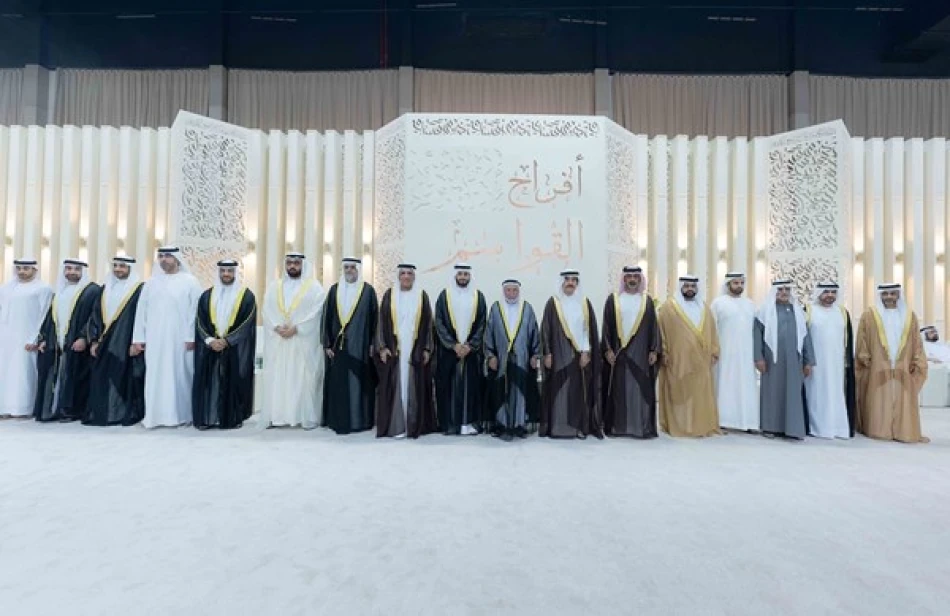
Royals Witness Sheikh Ahmed bin Sultan bin Mohammed Al Qasimi's Lavish Wedding Celebration
UAE Royal Wedding Unites Emirates Leadership in Grand Celebration
The marriage of Sheikh Ahmed bin Sultan bin Mohammed Al Qasimi brought together rulers and crown princes from across the UAE's seven emirates in a display of unity that underscores the federation's enduring strength. The wedding reception at Sharjah Golf and Shooting Club highlighted how personal celebrations among ruling families continue to serve as diplomatic touchstones in the Emirates' political landscape.
A Strategic Alliance Through Marriage
The wedding ceremony connected two branches of Sharjah's ruling Al Qasimi family, with the groom being the son of Crown Prince Sultan bin Mohammed bin Sultan Al Qasimi, and the bride being the daughter of Deputy Ruler Sultan bin Ahmed bin Sultan Al Qasimi. Such marriages within ruling families have historically strengthened internal governance structures across the Gulf region.
The presence of Sheikh Dr. Sultan bin Mohammed Al Qasimi, Ruler of Sharjah, alongside rulers from Umm Al Quwain and Ras Al Khaimah, demonstrates the continued importance of inter-emirate relationships in maintaining federal cohesion.
Federal Unity on Display
The guest list read like a who's who of UAE leadership, including crown princes from Ajman, Fujairah, Umm Al Quwain, and Ras Al Khaimah. Notably, Sheikh Ahmed bin Mohammed bin Rashid Al Maktoum, Second Deputy Ruler of Dubai, represented the emirate's ruling family, while Lieutenant General Sheikh Saif bin Zayed Al Nahyan, Deputy Prime Minister and Minister of Interior, attended on behalf of the federal government.
This cross-emirate attendance reflects a deliberate effort to maintain visible unity among the UAE's ruling families, particularly important as the federation approaches its sixth decade since formation in 1971.
Cultural Diplomacy Through Tradition
The celebration featured traditional Emirati folk performances, serving a dual purpose of entertainment and cultural preservation. These displays of heritage and authenticity reinforce national identity while demonstrating to citizens the leadership's commitment to local traditions amid rapid modernization.
Such events allow ruling families to connect with citizens in a more personal context, strengthening the social contract that has underpinned the UAE's stability compared to regional neighbors that have experienced greater political turbulence.
Political Significance Beyond Celebration
Royal weddings in the Gulf carry weight beyond their social significance. They provide neutral ground for political dialogue, relationship building, and the subtle communication of alliances. The unanimous attendance by UAE leadership suggests continued consensus on major policy directions, from economic diversification to regional security cooperation.
For Sharjah specifically, which has positioned itself as the UAE's cultural capital while maintaining important economic ties with Iran, such displays of federal solidarity help balance the emirate's sometimes independent foreign policy positions with its commitment to UAE unity.
The wedding's timing and scale also send a message of confidence and stability to international partners and investors, demonstrating that the UAE's federal structure remains robust and that its leadership maintains strong personal and political bonds.
Most Viewed News

 Layla Al Mansoori
Layla Al Mansoori






